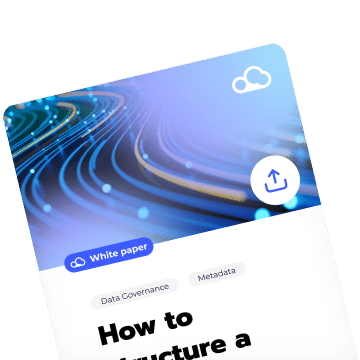DataGalaxy’s CDO Masterclass is an immersive, recurring three-day online experience that gives data professionals a unique opportunity to learn from the world’s top brands leading data-driven transformation. Each day of the CDO Masterclass is curated by industry experts and includes extensive content on practical case studies, industry best practices, sample data management and data governance roadmaps, interactive activities, roundtable discussions, and professional networking activities.
This blog post will discuss the top five key learnings from DataGalaxy’s CDO Masterclass Season 3, which included extensive content on practical case studies and industry best practices, including
- Daily keynote speeches from industry leaders
- Sample roadmaps from top organizations
- Interaction with data professionals, event keynote speakers, and Masterclass leaders
CDO Masterclass Season 3 keynote discussions
Season 3 of CDO Masterclass was packed with interactive conversations from some of the big data industry’s top voices and leaders paving the way for a new era of organizational data management and data governance.
Day 1:
“Monetize, Manage and Measure Data as an Actual Asset” by Doug Laney, Innovation Fellow for Data & Analytics Strategy at West Monroe
FLOA Bank Customer Story – “Paving the Way for Enhanced Data Utilization & Tech Adoption Through Data Governance: Lessons Learned from FLOA’s Journey” by Sébastien Robert, Chief Data & AI Officer at FLOA Bank
Day 2:
LVMH Customer Story – “LVMH: Key Takeaways from a Data Transformation Journey” by Baudouin du Baret, Data Governance Lead at LVMH
Day 3:
CDO’s in 90 days – “30-60-90 Days + Strategic Vision, Data Challenges, & Business Goals” by Kash Mehdi, DataGalaxy’s VP of Growth
Customer Story: SwissLife Insurance by Laurent Dresse, DataGalaxy’s Chief Evangelist
Top 5 key learnings from CDO Masterclass Season 3
-
- Data governance exists for more than just mitigating risk, it should enable organizational growth! Your company’s personal data governance plan should be defined by the goals you want to achieve, even if you have to work under constraints or roadblocks. Data governance will help to ensure the data you use every day is available, usable, and discoverable – In that way, it helps you achieve your organizational goals.
- Control what you can control: A best practice when thinking about inspiring organizational change toward becoming more data literate. Set KPIs for data quality, manage critical attributes, create a source of truth for customers, and monitor your regulation compliance – Measure progress by what you can control on your side as a data professional.
- Self-service doesn’t mean “open bar.” Self-service is about creating a consistent data governance model that helps to retain control of the data while facilitating creativity and agility and working towards goals that work best for your organization.
- Monetizing, managing, and measuring: The three steps to transforming data into an asset. It’s about knowing what you have, realizing the value data has to your particular organization to achieve your company’s goals, and managing the data to be clean, manageable, and useable for the future.
- Data governance is not a sprint, it’s a marathon! Working with high-quality data, speaking the same language across business lines, and having defined data ownership are all signs that your data initiatives are working.
Each season of CDO Masterclass features new content, speakers, and participants sharing the latest news and top tips in data management and data governance. Keep up-to-date with all things DataGalaxy by joining us for CDO Masterclass Season 4, coming soon!
We regularly host interactive webinars like the CDO Masterclass perfect for data professionals to upgrade their skill sets, collaborate with peers, and network with representatives from leading big data & AI companies around the world. Find us at an event near you or join an online webinar to learn more.





